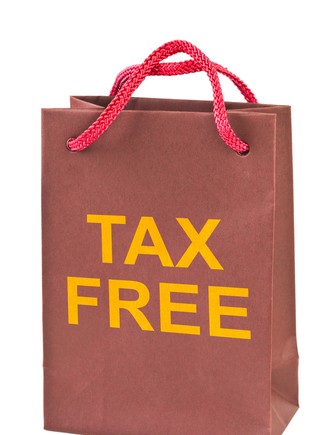A sales tax is paid by an individual to a local, state, or federal government for the purchase of goods or services. Although there is no general federal sales tax, the federal government does issue a sales tax for a select amount of goods or services. Currently, forty-five states impose sales taxes. Within each state, local governments are also sometimes granted the authority to issue a sales tax. This authority is either a general authority, or a selective authority for certain goods.
States Without a Sales Tax
Although the majority of states opt for a sales tax, not all locations impose this requirement on businesses and shoppers. Currently, there are five states without sales taxes. They are:
- Alaska
- Delaware
- Montana
- New Hampshire
- Oregon
However, each of these states have their own unique stipulations to their “no sales tax” policy. For example, although the state of Alaska does not issue a sales tax, it does grant local jurisdictions to enact their own sales taxes. Furthermore, visitors to this state must pay fees for renting vehicles or for going on cruise ships.
While Delaware consumers do not pay sales taxes on services, the state does issue a gross receipts tax on all businesses. In a way, this ends up essentially operating as a sales tax.
In Montana, local communities who are aimed towards recreational visitors are allowed to issue a type of a sales tax. They can issue resort and local-option taxes. However, this type of tax is capped at three percent in Montana.
In New Hampshire, general consumer products are not taxed. Yet, the state does issue some specified taxes on services—such as a tax on restaurant meals, lodgings, and car rentals.
Finally, in Oregon, there are no exceptions to the general “no sales tax” policy. However, Oregon residents cannot then claim sales taxes paid in other states as an attempt to reduce their Oregon income taxes.
How to Calculate Sales Tax
You can calculate the sales tax by multiplying the purchase price by the tax rate—this tax rate fluctuates depending on the state, or the local jurisdiction. The tax is issued at the time of the sale, and then collected by the issuer of the goods or services. Certain goods are usually exempt from sales taxes, but this varies from state to state. For example, many states exempt intangible property from taxable goods, such as licenses. Additionally, any good that is being resold is exempt from sales tax.
Furthermore, not all organizations or entities are required to pay sales tax. Charitable and religious organizations are frequently exempt from paying sales taxes for products or services purchased for the charitable or religious organizations’ use.
Shopping in a state with no sales tax can save you money, especially if you need to make a big purchase. So, if you are looking for a state that does not issue sales taxes, you can visit any one of the five states listed to do some shopping! Remember to be aware of the stipulations discussed.






